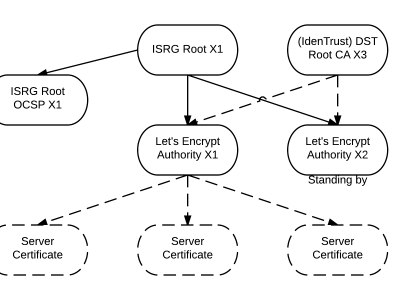針對大型文件系統可以試試此 Bash 腳本

你是否曾經想列出目錄中的所有文件,但僅列出文件,而不列出其它的。僅列出目錄呢?如果有這種需求的話,那麼下面的腳本可能正是你一直在尋找的,它在 GPLv3 下開源。
當然,你可以使用 find 命令:
find . -maxdepth 1 -type f -print但這鍵入起來很麻煩,輸出也不友好,並且缺少 ls 命令擁有的一些改進。你還可以結合使用 ls 和 grep 來達到相同的結果:
ls -F . | grep -v /但是,這又有點笨拙。下面這個腳本提供了一種簡單的替代方法。
用法
該腳本提供了四個主要功能,具體取決於你調用它的名稱:lsf 列出文件,lsd 列出目錄,lsx 列出可執行文件以及 lsl 列出鏈接。
通過符號鏈接無需安裝該腳本的多個副本。這樣可以節省空間並使腳本更新更容易。
該腳本通過使用 find 命令進行搜索,然後在找到的每個項目上運行 ls。這樣做的好處是,任何給腳本的參數都將傳遞給 ls 命令。因此,例如,這可以列出所有文件,甚至包括以點開頭的文件:
lsf -a要以長格式列出目錄,請使用 lsd 命令:
lsd -l你可以提供多個參數,以及文件和目錄路徑。
下面提供了當前目錄的父目錄和 /usr/bin 目錄中所有文件的長分類列表:
lsf -F -l .. /usr/bin目前該腳本不處理遞歸,僅列出當前目錄中的文件。
lsf -R該腳本不會深入子目錄,這個不足有一天可能會進行修復。
內部
該腳本採用自上而下的方式編寫,其初始化功能位於腳本的開頭,而工作主體則接近結尾。腳本中只有兩個真正重要的功能。函數 parse_args() 會仔細分析命令行,將選項與路徑名分開,並處理腳本中的 ls 命令行選項中的特定選項。
list_things_in_dir() 函數以目錄名作為參數並在其上運行 find 命令。找到的每個項目都傳遞給 ls 命令進行顯示。
總結
這是一個可以完成簡單功能的簡單腳本。它節省了時間,並且在使用大型文件系統時可能會非常有用。
腳本
#!/bin/bash
# Script to list:
# directories (if called "lsd")
# files (if called "lsf")
# links (if called "lsl")
# or executables (if called "lsx")
# but not any other type of filesystem object.
# FIXME: add lsp (list pipes)
#
# Usage:
# <command_name> [switches valid for ls command] [dirname...]
#
# Works with names that includes spaces and that start with a hyphen.
#
# Created by Nick Clifton.
# Version 1.4
# Copyright (c) 2006, 2007 Red Hat.
#
# This is free software; you can redistribute it and/or modify it
# under the terms of the GNU General Public License as published
# by the Free Software Foundation; either version 3, or (at your
# option) any later version.
# It is distributed in the hope that it will be useful, but
# WITHOUT ANY WARRANTY; without even the implied warranty of
# MERCHANTABILITY or FITNESS FOR A PARTICULAR PURPOSE. See the
# GNU General Public License for more details.
# ToDo:
# Handle recursion, eg: lsl -R
# Handle switches that take arguments, eg --block-size
# Handle --almost-all, --ignore-backups, --format and --ignore
main ()
{
init
parse_args ${1+"$@"}
list_objects
exit 0
}
report ()
{
echo $prog": " ${1+"$@"}
}
fail ()
{
report " Internal error: " ${1+"$@"}
exit 1
}
# Initialise global variables.
init ()
{
# Default to listing things in the current directory.
dirs[0]=".";
# num_dirs is the number of directories to be listed minus one.
# This is because we are indexing the dirs[] array from zero.
num_dirs=0;
# Default to ignoring things that start with a period.
no_dots=1
# Note - the global variables 'type' and 'opts' are initialised in
# parse_args function.
}
# Parse our command line
parse_args ()
{
local no_more_args
no_more_args=0 ;
prog=`basename $0` ;
# Decide if we are listing files or directories.
case $prog in
lsf | lsf.sh)
type=f
opts="";
;;
lsd | lsd.sh)
type=d
# The -d switch to "ls" is presumed when listing directories.
opts="-d";
;;
lsl | lsl.sh)
type=l
# Use -d to prevent the listed links from being followed.
opts="-d";
;;
lsx | lsx.sh)
type=f
find_extras="-perm /111"
;;
*)
fail "Unrecognised program name: '$prog', expected either 'lsd', 'lsf', 'lsl' or 'lsx'"
;;
esac
# Locate any additional command line switches for ls and accumulate them.
# Likewise accumulate non-switches to the directories list.
while [ $# -gt 0 ]
do
case "$1" in
# FIXME: Handle switches that take arguments, eg --block-size
# FIXME: Properly handle --almost-all, --ignore-backups, --format
# FIXME: and --ignore
# FIXME: Properly handle --recursive
-a | -A | --all | --almost-all)
no_dots=0;
;;
--version)
report "version 1.2"
exit 0
;;
--help)
case $type in
d) report "a version of 'ls' that lists only directories" ;;
l) report "a version of 'ls' that lists only links" ;;
f) if [ "x$find_extras" = "x" ] ; then
report "a version of 'ls' that lists only files" ;
else
report "a version of 'ls' that lists only executables";
fi ;;
esac
exit 0
;;
--)
# A switch to say that all further items on the command line are
# arguments and not switches.
no_more_args=1 ;
;;
-*)
if [ "x$no_more_args" = "x1" ] ;
then
dirs[$num_dirs]="$1";
let "num_dirs++"
else
# Check for a switch that just uses a single dash, not a double
# dash. This could actually be multiple switches combined into
# one word, eg "lsd -alF". In this case, scan for the -a switch.
# XXX: FIXME: The use of =~ requires bash v3.0+.
if [[ "x${1:1:1}" != "x-" && "x$1" =~ "x-.*a.*" ]] ;
then
no_dots=0;
fi
opts="$opts $1";
fi
;;
*)
dirs[$num_dirs]="$1";
let "num_dirs++"
;;
esac
shift
done
# Remember that we are counting from zero not one.
if [ $num_dirs -gt 0 ] ;
then
let "num_dirs--"
fi
}
list_things_in_dir ()
{
local dir
# Paranoia checks - the user should never encounter these.
if test "x$1" = "x" ;
then
fail "list_things_in_dir called without an argument"
fi
if test "x$2" != "x" ;
then
fail "list_things_in_dir called with too many arguments"
fi
# Use quotes when accessing $dir in order to preserve
# any spaces that might be in the directory name.
dir="${dirs[$1]}";
# Catch directory names that start with a dash - they
# confuse pushd.
if test "x${dir:0:1}" = "x-" ;
then
dir="./$dir"
fi
if [ -d "$dir" ]
then
if [ $num_dirs -gt 0 ]
then
echo " $dir:"
fi
# Use pushd rather passing the directory name to find so that the
# names that find passes on to xargs do not have any paths prepended.
pushd "$dir" > /dev/null
if [ $no_dots -ne 0 ] ; then
find . -maxdepth 1 -type $type $find_extras -not -name ".*" -printf "%f�00"
| xargs --null --no-run-if-empty ls $opts -- ;
else
find . -maxdepth 1 -type $type $find_extras -printf "%f�00"
| xargs --null --no-run-if-empty ls $opts -- ;
fi
popd > /dev/null
else
report "directory '$dir' could not be found"
fi
}
list_objects ()
{
local i
i=0;
while [ $i -le $num_dirs ]
do
list_things_in_dir i
let "i++"
done
}
# Invoke main
main ${1+"$@"}via: https://opensource.com/article/20/2/script-large-files
作者:Nick Clifton 選題:lujun9972 譯者:wxy 校對:wxy
本文轉載來自 Linux 中國: https://github.com/Linux-CN/archive






















